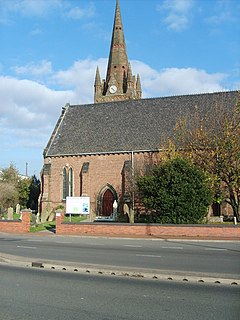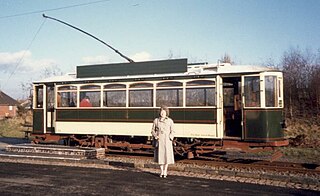
The West Midlands is a metropolitan county in western-central England with a 2014 estimated population of 2,808,356, making it the second most populous county in England after Greater London. It came into existence as a metropolitan county in 1974 after the passage of the Local Government Act 1972, formed from parts of Staffordshire, Worcestershire and Warwickshire. The county itself is a NUTS 2 region within the wider NUTS 1 region of the same name. The county consists of seven metropolitan boroughs: the City of Birmingham, the City of Coventry and the City of Wolverhampton, as well as the boroughs of Dudley, Sandwell, Solihull and Walsall.

Bilston is a small market town and civil parish in the West Midlands. It is part of Wolverhampton and situated close to the borders of Sandwell and Walsall. The closest of these are Darlaston and Wednesbury as well as Willenhall and Tipton.

Willenhall is a market town situated in the Metropolitan Borough of Walsall, in the West Midlands, England, with a population taken at the 2011 census of 28,480. It is situated between Wolverhampton and Walsall, historically in the county of Staffordshire. It lies upon the River Tame, and is part of the Black Country.

Darlaston is a small market town in the Metropolitan Borough of Walsall in the West Midlands of England. It located near Wednesbury and Willenhall.
The area straddles the historic border between the counties of Warwickshire, Staffordshire, Worcestershire.

Moxley is a part of Darlaston in the West Midlands. It was first developed during the early part of the 19th century when a handful of terraced houses were built to accommodate locals working in factories and mines and the area was created in 1845 out of land from Darlaston, Bilston and Wednesbury.

Walsall railway station is the principal railway station of Walsall, West Midlands, England and situated in the heart of the town. It is operated by West Midlands Trains, with services provided by West Midlands Railway. The main entrance is situated inside the Saddlers Shopping Centre.

Dudley Port railway station in Tipton, West Midlands, England, is on the Stour Valley Line. The station is operated by West Midlands Trains.
The South Staffordshire line is a partly used and partly disused railway line that once connected Burton-upon-Trent to Lichfield in Staffordshire and then to the West Midlands towns of Walsall, Dudley and Stourbridge. However, Dudley and Stourbridge were already joined to the Oxford, Worcester and Wolverhampton Railway's (OW&WR) line just north of Dudley Station. It in essence, continued to Stourbridge. The sections from Burton-Upon-Trent to Lichfield City remains open as well as the section from Ryecroft Junction to Bescot. The track from Walsall to Lichfield City is now both a footpath and disused while the section from Walsall to Dudley is mothballed.

The Walsall–Wolverhampton line is a railway line in the West Midlands, England. It connects the town of Walsall to the city of Wolverhampton. The complete line does not currently have any regular scheduled passenger services: The line's local passenger service was withdrawn in 1965, it was restored in 1998, only to be withdrawn again in 2008. At present, the main use of the line is by freight trains, and it is also used as a diversionary route when engineering works are carried out on the West Coast Main Line.

Wednesbury Town railway station was a station on the South Staffordshire Line.

Darlaston James Bridge railway station was a station built on the Grand Junction Railway in 1837, serving the James Bridge area in the east of the town centre of Darlaston, near the junction of Walsall Road and Bentley Mill Way.

Willenhall Bilston Street railway station was a station built on the Grand Junction Railway in 1837. It served the town of Willenhall, and was located just to the south of the town centre. It was one of two railway stations in the town - the other being Willenhall Stafford Street.

Walsall Corporation Tramways operated a tramway service in Walsall between 1904 and 1930.

The Kinver Light Railway operated a passenger and freight tramway service between Amblecote and Kinver, in South Staffordshire, between 1901 and 1930.
Wolverhampton Tramways Company operated a tramway service in Wolverhampton between 1878 and 1900.



















